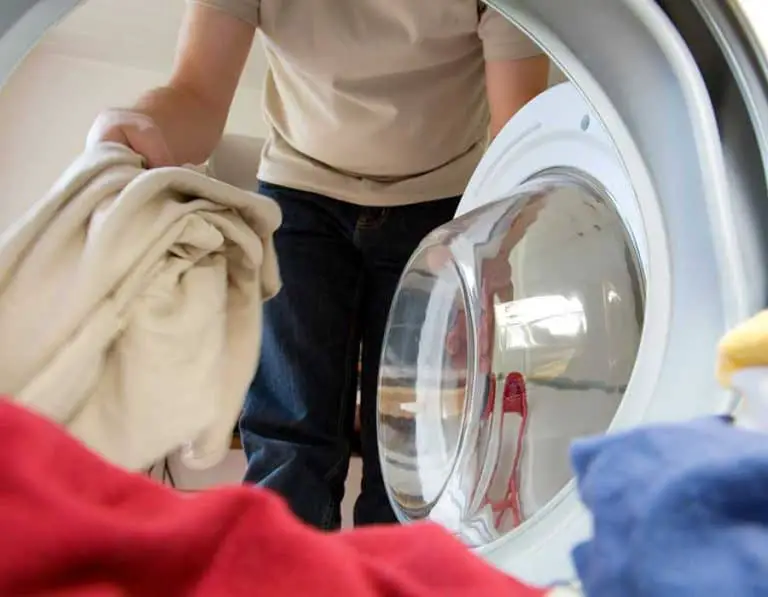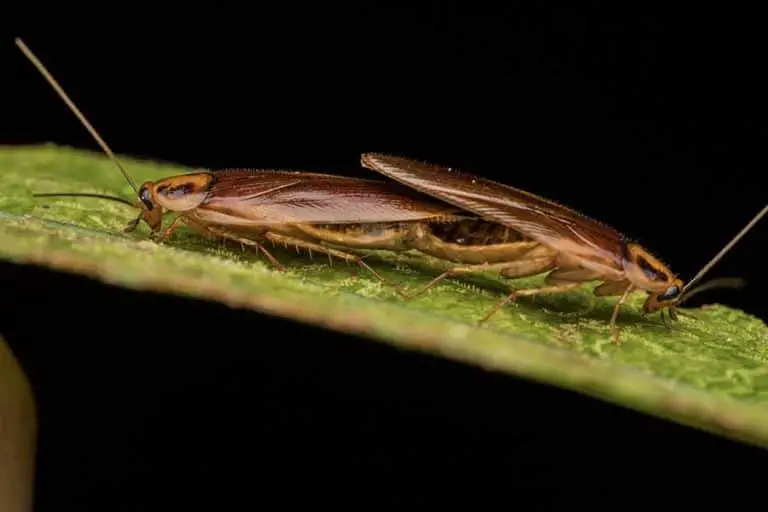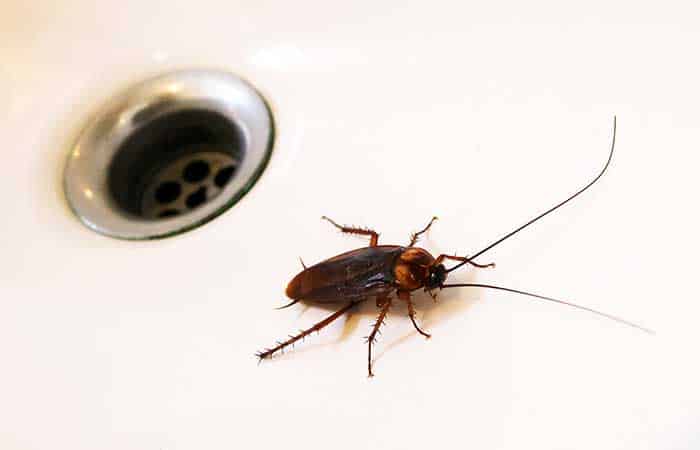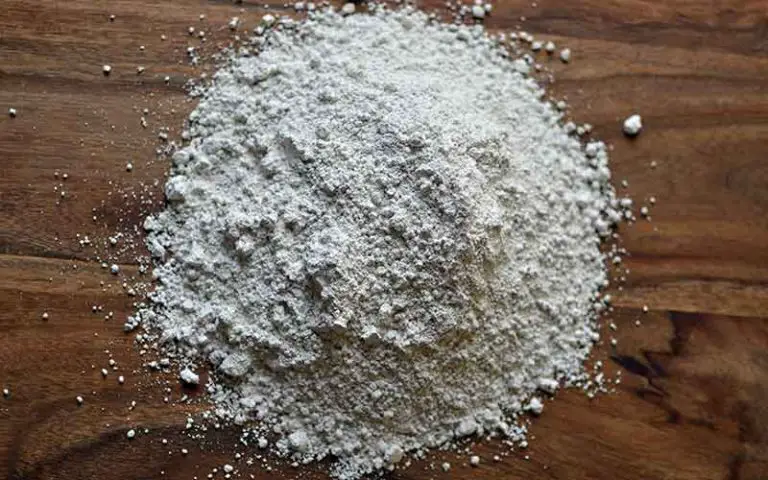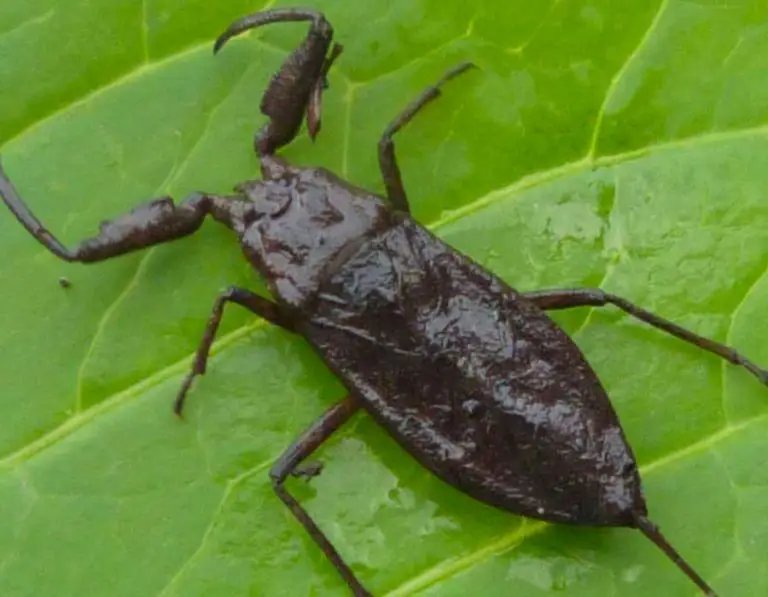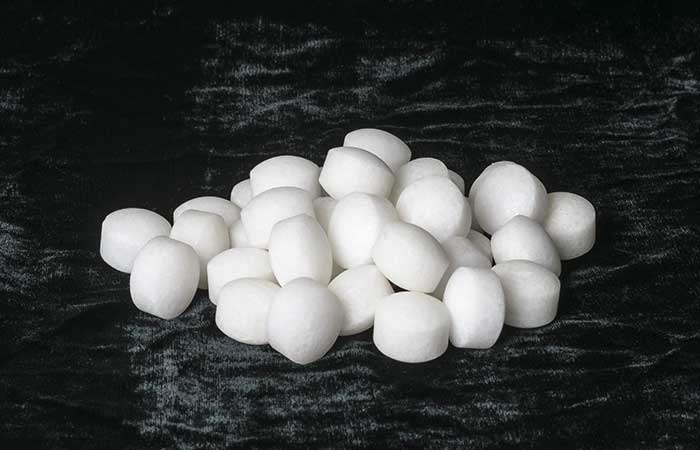Can Roaches Survive in The Cold: Do They Hibernate?
Cockroaches are ectotherms (cold-blooded), which means they can’t live in extreme hot or cold temperatures. If the temperatures drop too low and there is no time to adjust, they may freeze to death.
Some cockroaches will go into a state of hibernation called diapause if they can’t find somewhere warmer to live. This causes their metabolic rate to significantly slow down and the growth of the roach will stop to increase their chances of survival.
If the temperature falls below 15° F, cockroaches that haven’t found somewhere to hole up for the winter will begin to die. In the winter, roaches hibernate to save energy and produce offspring at a reduced rate.
This usually means that they will seek refuge in homes since they are warm and more likely to access food easily. When the weather warms up, they will start becoming more active and move to the warmer spaces within the house.
What Happens to Roaches in Winter?
Unfortunately, roaches can become a bigger threat to your home in the winter. They move inside homes and become pests when they cannot find anywhere else to stay warm.
Cockroaches are nocturnal and difficult to detect until there is a bigger infestation, which is why many homeowners will not realize they have them until the weather warms up. Cockroaches will seek out warmer regions within the home, with a preference for locations with easy access to food and water.
Where Do Cockroaches Go in The Winter?
Cockroaches that live outside will enter hibernation in the winter. The majority of them will slumber through the winter, hiding beneath mounds of wood, leaves, and mulch. Cockroaches can’t migrate in the winter, so they must find a heat source somewhere. The most typical hibernation locations are:
Wood piles – Even if covered with branches and yards of debris, firewood located in cracks and gaps is attractive to cockroaches. They can become agitated if the woodpiles are utilized all winter, making them a potentially risky refuge.
Vents – Cockroaches use vents as an easy and warm way to gain access to homes.
Drains and pipes – Pipes and drains are full of moisture, attracting cockroaches looking for hydration.
Walls and rafters – Cracks and holes in walls offer access to drywall or warm insulation which is perfect for cockroaches looking to warm up.
Kitchens – Cockroaches will hide down the back of kitchen cabinets in order to avoid detection. They may even access food crumbs and liquids that seep through the gaps as a result of this.
Basements – Cockroaches frequent the most humid portion of a house, making basements an ideal refuge for them.
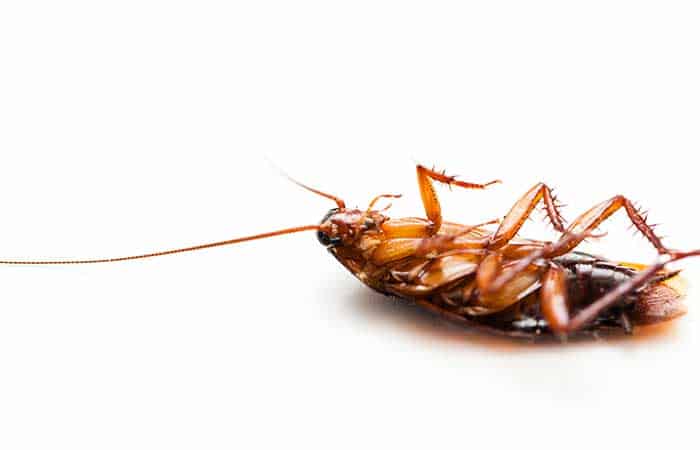
How Long Are Roaches Able to Survive in The Cold?
Roaches are unable to survive the cold for extended periods of time. Roaches die when their body temperature gets too low, not due to frostbite, but rather because they lose mobility and starve. Their bodies cannot function properly below a certain temperature, which is typically 10-15° F for most breeds of household roach species. If there was any place to hibernate, it would be roughly this temperature range.
Roaches may enter a state of torpor (similar to hibernation) if the temperature is low enough for an extended period of time or they are sick/injured, but they will not survive past temperatures at which they can still move and their systems begin shutting down below 10-15° F, which is why they are not typically found in the cold.
When the weather starts to get colder, cockroaches will begin to cut down on their everyday activities. Energy is conserved, and they limit any activities that put them in danger of dying from hypothermia. In fact, when the temperatures drop below 10° F, cockroaches will cease reproduction and development immediately.
If they can’t find a warm place and reside in an environment with a temperature colder than their body can handle, within a few hours they will become sick and eventually die.
The Preferred Temperature For Roaches
Roaches are primarily nocturnal. While their activity level rises around dawn and falls at sunset, they are still more active in the dark than in the light. They prefer temperatures between 77 and 86 degrees Fahrenheit which is similar to the preferred temperature for humans. These temperatures also promote rapid development, which is why infestations are more prevalent during the spring and summer.
Does Light Affect Roaches During The Winter?
Roaches are nocturnal insects, so they prefer darkness and quiet during the day when they rest. When roaches enter homes in the winter it is typically after dark and when household members are sleeping. For this reason, there is typically a lack of lights on in the house at night when roaches enter to shelter.
However, if a person notices a cockroach in his or her home during the day and turns on the lights, it may become startled and speed away quickly. If this happens indoors during daylight hours for an extended period of time, it may indicate that roaches are using the property as shelter.
What Season Do Cockroaches Come Out the Most?
While it may be more common to find cockroaches indoors in the fall, spring, and summer months, these pests are still prevalent throughout winter. Not all roaches hibernate during the winter either. Although there are fewer insects around to compete with for resources, some breeds can survive cold conditions. Roaches typically seek shelter when the weather becomes cold, just like other household pests.
That being said, it is possible for roaches to enter homes in the winter if outdoor conditions are favorable. Warm breezes may invite them inside through open doors or windows that have been left ajar. They also tend to move farther into an infested home when the exterior walls of the building remain warm, while the rooms and other exterior surfaces are colder.
Do Cockroaches Hibernate in Winter?
Cockroaches will spend the winter in diapause, which is a period of rest that prevents them from breeding. It also causes their metabolic rate to slow significantly and they won’t grow.
Diapause occurs when the weather gets cold or inhospitable. If it gets too cold, cockroaches will die, but if the weather stays cold long enough to trigger diapause, they will start making their way into homes in order to get out of the cold.
They hibernate during the winter because it’s too cold for them to find food outside. Inside homes, roaches won’t have to expend energy looking for food and water and can save their energy for reproduction.
Cockroaches do not have a biological clock that tells them when to wake up, so they will stay in diapause until the weather warms up enough to cause them to become active. Once it starts warming up, roaches will come out of hibernation and start finding food and water sources in the house.
How Long Do Cockroaches Hibernate?
The length of time that a roach will spend in diapause will vary between breeds. Smaller roach varieties tend to come out of hibernation sooner than larger ones because smaller roaches need less food and water. The weather also has an effect on the length of time it takes for roaches to come out of hibernation, so during spring when warmer temperatures start to return, roaches will wake up from hibernation and search for food.
When Do Roaches Typically Hibernate?
Cockroaches usually wait until the end of autumn to start their hibernation and will only do so when the temperatures drop. They may not finish hibernating until early spring depending on how long and cold winter is for their current geographical location.
How Does Hibernation Affect Roaches?
Hibernation is important because it prevents them from dying from the cold. The colder temperatures will cause a decrease in their metabolic rate, causing them to need less food and water during this time. They typically seek out warm areas of homes to hibernate, such as behind appliances or under sinks.
What Do Roaches Eat During Hibernation?
Although they are not necessarily eating, roaches get the majority of their hydration from water in sinks and pipes. The rest of their food is usually carbohydrates found in walls or insulation.
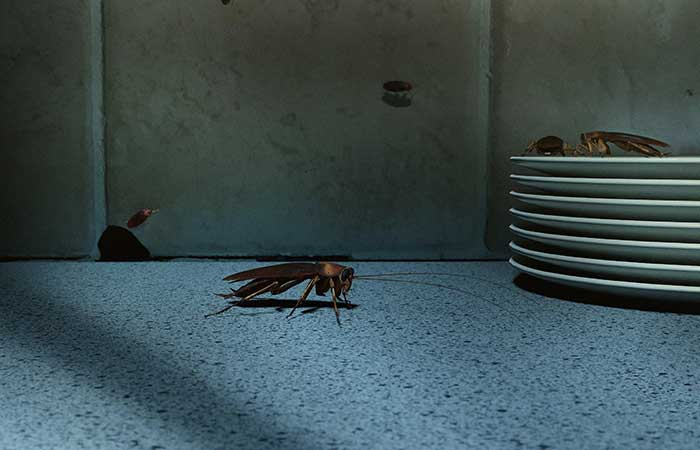
How Can I Keep Cockroaches Out of My House in the Winter?
There are several ways to keep cockroaches out of your home during the winter months.
- Inspect the exterior of your home for cracks and gaps that may lead to the inside. Cockroaches only need a space as large as a quarter-inch to gain entry, so caulking all holes can help keep them out.
- Repair leaking pipes and drains. If cockroaches have access to water near a heat source, they will seek it out.
- Inspect the exterior of your home for wood piles, firewood, vents, and drains that may lead inside.
- Vent Your HVAC System: If you have a central heating system, make sure to vent it properly to keep cockroaches from hiding in the warm tunnel of the unit.
- Don’t leave food out on the counters. If you are storing bread, make sure it is enclosed in zippered plastic bags or containers to prevent cockroaches from accessing the crumbs.
Keep your home as clean as possible by sweeping and mopping regularly, especially under appliances like fridges and stoves where roaches love to hide.
Does Freezing Roaches Work As An Elimination Technique?
Roaches will tolerate the same range of temperatures as humans. As a result, unless you are willing to experience extreme cold in your home for an extended period of time, it is not an ideal solution to an infestation.
If the temperature is cold enough, it will kill them, but if not they will come out of diapause when it warms up again and start breeding again.
It’s not advisable because it’s not feasible in most cases. Temperatures have to be extremely low throughout the home, often to the point that homeowners will be uncomfortable. If you have roaches in your wall, then you might not be able to dip your temperature low enough to kill those. This will cause a re-infestation.
Moreover, let’s talk about the feasibility of actually dropping the temperature in your home low enough to kill every single roach in your house. Most parts of the country do not get cold enough to kill roaches on a regular basis. Even if you do live in a place like North Dakota, the truth is that most people will not be able to fully air out their homes.
Will Cockroaches Leave A Cold House?
Cockroaches will leave in search of a warmer place if the temperature is cold enough. They may not find one but remaining in a cold home is often not an option for the pests. Houses have small gaps and cracks that provide enough warmth for cockroaches to survive, so they often don’t feel the need to search for another home to stay warm.
Cockroaches can endure colder temperatures and even adapt to them if they stay within a range that they can handle. Because they also get energy through their food sources (i.e., human food) this means that if there is any in your house, it will be enough for them to live through the winter. Unless they are inside an extremely cold home (usually unfit for human inhabitancy), certain varieties of animals will hibernate within it until the temperature rises again.

